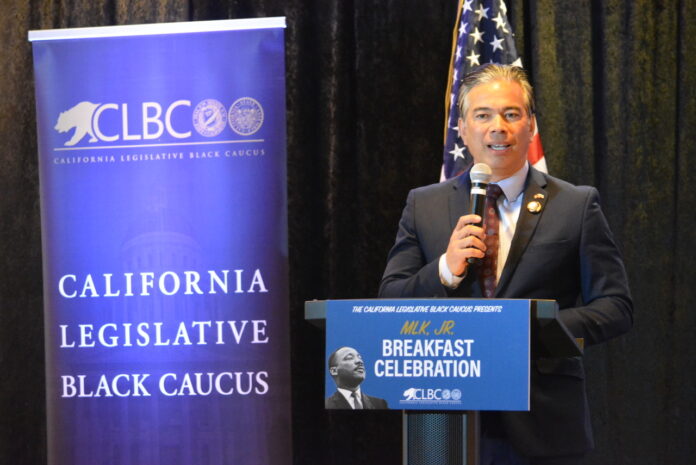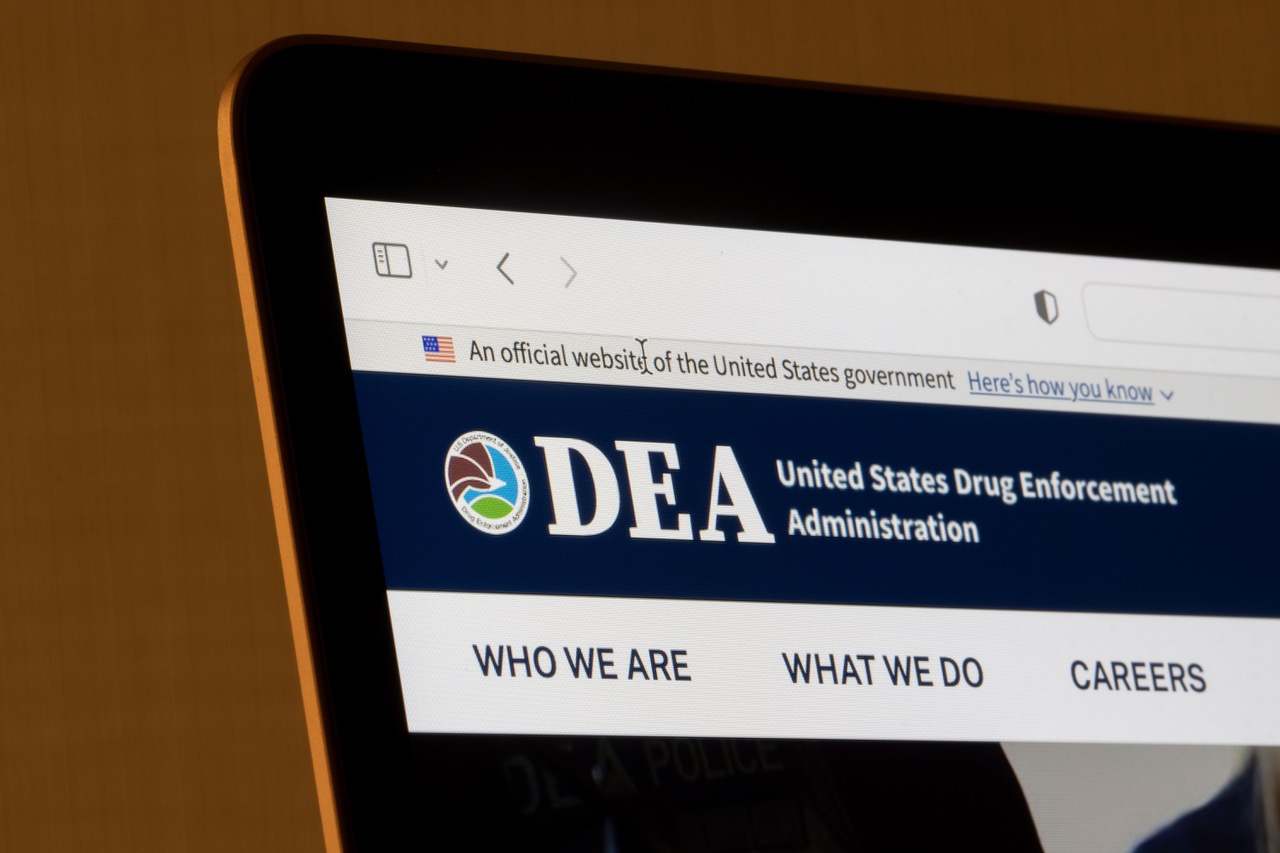
By Tanu Henry and Joe W. Bowers Jr., California Black Media
California Pauses to Promote Racial Healing and Justice
On Jan. 16, a day after America celebrated Martin Luther King Jr. Day, California Attorney General Rob Bonta hosted a conversation with a diverse group of state leaders to commemorate the National Day of Racial Healing.
“The National Day of Racial Healing is typically observed each year in January, and it is intended to be a time to reflect on our shared values – what brings us together and what unites us,” said Bonta.
“It is also an opportunity to discuss the real lasting and present harms of racism in our society,” continued Bonta. “But more importantly, it is about healing. That takes acknowledgement of the pain and harm. It takes accountability, and it takes justice-oriented solutions.”
The panel’s participants were Los Angeles County Supervisor Holly Mitchell; California reparations task force members Don Tamaki and Cheryl Grills; Orange County Human Relations Commission Chair Jo-Anne Matsuba; and Asian American Senior Citizens Service Center Executive Director Jennifer Wang.
Mitchell thanked Bonta for not shying away from difficult conversations on anti-racism initiatives, especially as “we acknowledge the role government has played and will continue to play – unless we stand in the gap – in promoting racially biased policies,” she said.
Mitchell, who served in the State Legislature as an Assemblymember and Senator from 2010 to 2020, is also the founder of the created the Second District Racial Justice Learning Exchange.
Grills and Tamaki shared their experiences serving on the on the California Task Force to Develop Reparations Proposals for African Americans.
“The number of those taking up the cause of reparations is growing, and I believe our efforts in California has contributed to that. While this has been a painful and necessary journey, I appreciate the allies who have stepped up from various racial and ethnic groups, standing up in solidarity, rolling up their sleeves to educate their communities,” said Grills.
Bonta thanked the Department of Justice and its Racial Justice Bureau for the work it does to confront hate that affects all Californians.
“Whether it is tackling the ongoing effects of systemic discrimination and the legacy of slavery or confronting our state and nation’s history of prosecution of Native Americans — the destruction of their homes or confronting the recent rises of pandemic-fueled hate and bias, we all have work to do,” said
Bonta. “There’s no single solution, but what I do know is we can solve these challenges together.”
California Launches Two Behavioral Health Apps for Children, Young Adults
Last week, the California Department of Health Care Services (DHCS) launched two free behavioral health apps: BrightLife Kids and Soluna.
BrightLife Kids is designed for families to support children 0 to 12 years old and Soluna caters to teens and young adults 13 to 25 years old.
Dr. Mark Ghaly, Secretary of the California Health and Human Services Agency (HHS), said both apps will give children, adolescents, and young adults a “new point of access” to behavioral health care and prevent mental health issues from escalating.
According to the DHCS, there was a 20% increase in adolescent suicides in California between 2019 and 2021, and, across the country, there is a mental health care provider shortage.
“About two-thirds of California kids with depression do not receive treatment. This platform will help meet the needs of California’s diverse children, youth, and families by expanding access to critical behavioral health supports. Our young people will have an accessible option to get the help they need,” Ghaly said in a statement.
According to a DHCS press release, app users may be connected with licensed wellness coaches for one-one-one professional help sessions in different languages.
“The tools are flexible and free for all California families, regardless of income, health insurance, or immigration status. I urge every young person and parent in California to visit the Soluna and Brightlife Kids apps to see if they are right for them,” said DHCS Director Michelle Baass, in a statement.
Report: State Has Implemented More Than 200 “Master Plan for Aging” Initiatives
Last week, the Little Hoover Commission, an independent California State Government oversight body created in 1962, released an analysis of Gov. Gavin Newsom’s “Master Plan of Aging.” The report was submitted to the Governor and members of the State Legislature.
The Commission credited the state for, so far, implementing 227 of the initiatives in the master plan, but it also made recommendations for strengthening the operations and impact of the work being done.
“In the years since releasing the Master Plan, an enormous amount of work is well underway through hundreds of implementing initiatives,” reads a letter from Pedro Nava, Little Hoover Commission Chair, in the report released on Jan. 17.
“The Commission applauds these early efforts by the Newsom Administration to drive progress, while recognizing that achieving the Master Plan’s vision will require sustained focus and commitment,” Nava continued.
Among eight recommendations in the report, the commission urged the state to enhance legislative oversight; create clearer goals; place higher priority on delivering results faster; increase accountability; and pooling existing state data to inform decisions.
“The Little Hoover report confirms that we are on target to reach the five goals of the Master Plan, which, together, provide a blueprint for improving the health and overall wellbeing of aging Californians,” said Cheryl Brown, Chair of the Executive Committee of the California Commission on Aging (CCoA).
“It is our goal to keep all seniors healthy and to keep them in their homes,” said Brown, who is a former Assemblymember who represented parts of Fontana, Rialto and other areas in San Bernardino County. “We are proposing legislation that will address behavioral health problems people so many people are experiencing and ensuring that caregivers have the appropriate training and education.”
In 2021, Newsom said he launched the Master Plan for Aging in response to the state’s growing population of people over 60, which will increase to about 10.8 million people by 2030.
“This Master Plan on Aging advances bold, innovative, uniquely Californian solutions for issues that we will all confront within
our own families and communities, if we have not already—and does so with a sustained focus on equity that we need to lift up everyone. The Plan reflects more than a year of hard work, research and sustained engagement to drive the partnerships that will improve lives for the older Californians of today and tomorrow,” said the Governor at the time.
California Asks DEA to Loosen Restrictions on Cannabis
California joined 11 other states in an effort to urge the federal Drug Enforcement Agency to reclassify marijuana as a Schedule III substance from its current designation as a Schedule I substance.
If the DEA makes that decision, cannabis will no longer be regarded as a substance with “high potential for abuse” or one that has “no medical use.”
“As state attorneys general, we have a responsibility to protect consumers and defend public safety. The undersigned are also particularly concerned about the illicit market, unregulated, intoxicating hemp-derived cannabinoids, and the continuing proliferation of dangerous opioids,” read the letter signed by Attorney General Rob Bonta and his counterparts.
“State-sanctioned cannabis markets provide access to regulated products that are clearly safer to what individuals can buy on the street — and supporting the effective operation of these regulated markets thus fits with our commitment to addressing the opioid crisis and rising overdose deaths,” the letter continued.
Bonta and the other attorney generals request follows a similar one from the United States Department of Health and Human Services to reschedule the substance.
Their letter, however, conceded that there remain persistent dangers associated with the cannabis.
“It is critical to acknowledge that use of cannabis, especially among youth, still incurs health and safety risks,” the letter stated. “Our regulatory regimes have sought to balance the mandate to create as safe a framework as possible with the reality of these risks.”
Other states backing the effort led by Colorado are Connecticut, Delaware, Illinois, Maryland, Massachusetts, Nevada, New Jersey, Pennsylvania, Oregon and Rhode Island.

California Brings Back “Dream for All” First-Time Homebuyer Program in April
Last week, the California Housing Finance Agency (CalHFA) announced last week that it is bringing back its “Dream for All” first-time homebuyer program in the spring – with a few tweaks to ensure it is more equitable.
The program provides down-payment loans of up to $150,000 or 20% of the appraised value, to eligible California residents.
“The 2023-24 State Budget allocates $220 million for the Dream For All Shared Appreciation Loan Program (DFA),” reads a section of CalHFA’s website with information on the program.
“Senate Bill (SB) 143 establishes parameters for the next round of DFA funding, including targeting first-generation homebuyers, supporting an equitable distribution in different regions of the state, and prioritizing participation of homebuyers in lower tiers of income eligibility,” the informational on the program continues.
According to the language in SB 143, the state can provide up to one billion dollars in loans annually, and all proceeds from repayment are deposited back into the program fund “for ongoing use in the program.
Interested applicants can check the CalHFA Dream for all income limits to make sure they earn under the designated per-county approval amount.
To qualify for the loans, applicants must also have not been on the title or mortgage — or held any ownership interest – in a home during the last seven years. Their parents must also have no present interest in a home in the United States or, “if deceased,” not have any ownership interest at the time of death in a home in the United States.”



